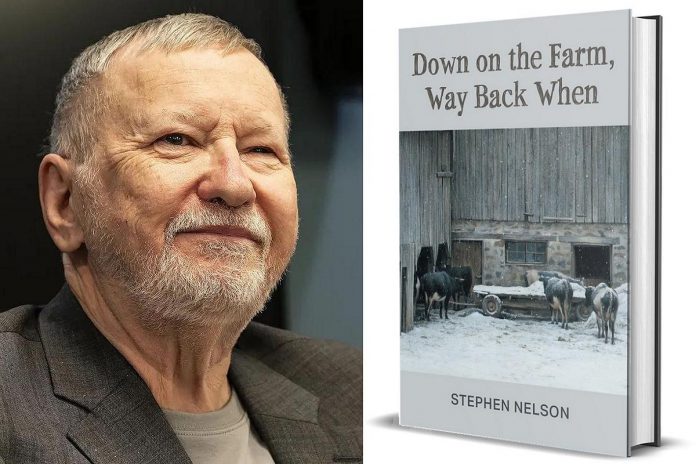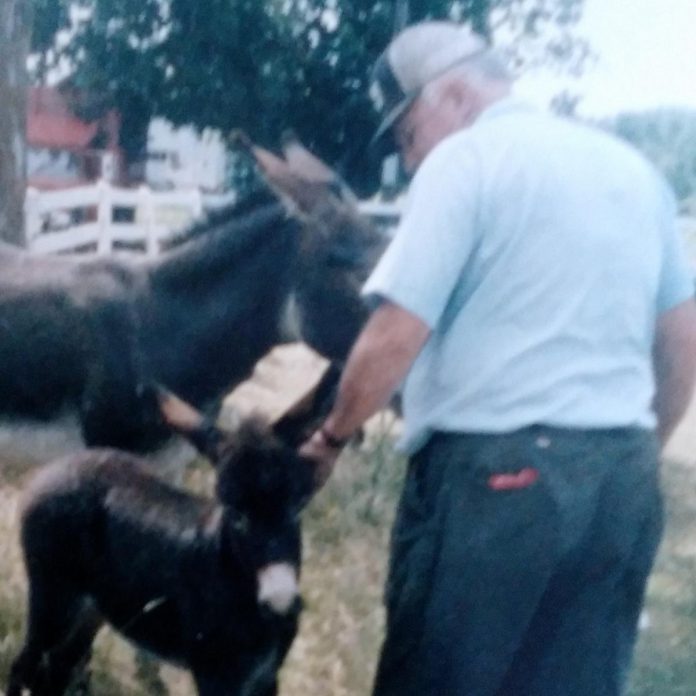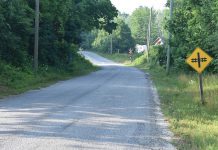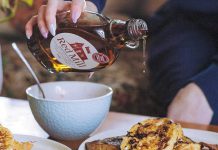
If you’ve ever wanted to know more about daily life on a farm, or if you’ve ever had to explain farm life to your city-slicker friends, Stephen Nelson’s memoir is for you.
Down on the Farm, Way Back When is a collection of stories, some humorous and some touching, about the author’s childhood spent on a dairy farm north of Campbellford. From stories about spending nights at the fair to reflections on how technology has changed agricultural practices, the memoir is filled with behind-the-scenes memories of life on a small family farm.
“The book itself is a walk down memory lane for the older generation and it’s a good way for the older generation to connect with the younger generation,” says Nelson. “But it also tells people, even city people that have never lived on a farm, what it really means to be a farmer and what a farmer in my day had to do.”
Now retired and living with his wife in Saint-Jean-sur-Richelieu in Quebec, just south of Montréal, Nelson spent his career working in publishing. A graduate of Fleming College, Nelson worked in the Public Service of Canada in Ottawa for 35 years, including for the R.C.M.P., where he worked with manuals, and over the last 30 years in National Defence, where he was a publications supply manager and reviewed manuals for format and layout before becoming the department’s publishing policy writer.
During work trips out of town, he would spend his downtime telling a co-worker stories about growing up on the family’s 300-acre dairy farm, where Nelson’s father raised purebred Holstein cattle, exhibiting them at fairs and exhibitions until he sold the farm in 1986.
“I started telling (my co-worker) a few stories and he would say ‘Why did you do that?’ or ‘How is that done?'” recalls Nelson, who began to realize many people did not know what it was like to be raised on a farm.

When he retired 10 years ago, Nelson began writing and publishing some of his stories and recollections on a Facebook page called Growing Up On A Dairy Farm. He gained 400 followers from around the world in five years, and when he finished sharing stories on the page, he decided to compile them all into a book.
“It’s something that I can leave the family,” he says. “I’ve always wanted to have a legacy of writing a book.”
Comprised of “stories a farmer would tell to another farmer,” Down on the Farm, Way Back When is divided into various sections covering aspects of farm life like “The Fields,” “The Animals,” and “The Fair.”
Some of the stories are entertaining, such as the pranks his father would play at the fairs — like convincing people to see a “hairless dog” (which turned out to be a hotdog) — and Nelson getting to meet NHL players Bobby and Dennis Hull and Sam Pollock, then-general manager of the Montréal Canadiens, at the Royal Agricultural Winter Fair.
“I remember everyone was congratulating (Pollock) and asking him ‘How are the Montréal Canadiens going to do this year?’ He basically said ‘I don’t care. I’m here because of my cattle,’ and all the farmers started cheering for him.”
As Nelson was writing one story, he would recall more and more, and says some of them affected him more than others. This includes a reflection about what a smock, which is often worn while out in the field, means to a farmer.
“It’s covered in dirt and grease because of the hard work you’re doing,” Nelson explains. “It’s the idea of spilled milk because you might kick (over) a pail. Sure, you don’t cry over spilled milk, but that also affects how much money you’re losing because your milk production is going down. It’s the idea that you could be cut, and you wipe your blood on your smock. All of these little things just hit home when I started writing it.”

In contrast, Nelson also reflects on the white clothes a farmer wears when in the ring at a fair showing their cattle. These clothes are white when the show begins, but they get dirty and soiled like the smocks as time goes on.
“Wearing the white clothes shows how much it means to the farmer and the sacrifices of the farmer that has to do everything to make cows produce milk and to get it to the quota that can be allowed to show at the fair or exhibition,” he says.
“You’ve got to spend time overnight at the fair away from your family, regardless of whether it’s an anniversary or — heaven forbid — a bereavement. It’s just the hard work that goes into it to do it all. And a farmer has to have a love of animals, the outdoors, and hard work. People don’t realize how hard a farmer works.”
Throughout the book, there are black-and-white personal photographs of Nelson doing chores on the farm and showing at the fairs. The front cover also features a snippet of the painting “Winter Barnyard” by Canadian nature artist Robert Bateman.
Nelson hopes the photos will not only help showcase life on the farm but will appeal to “history buffs that are interested in rural life from the 1960s to the 1980s” while also showing that not much is different today when it comes to small family farmers themselves.
“Even though the technology has changed with bigger and better farm equipment, bigger barns, and more cattle, a farmer is still the same,” Nelson says. “They’re a person of many jobs. You’re not just a person doing the milking — you’ve got accounting, you’ve got forecasting, you’re checking on the weather, you’re doing bookkeeping, and you don’t have anybody else to give the jobs.”

In sharing stories about his childhood, Nelson also hopes he’ll inspire others to pass down their own stories.
“One thing I want people to take away from it is to not be afraid to (speak) about their lives to the next generation,” he says of the book. “Maybe it will spur ideas for them to talk about how they grew up, whether it was on a farm or not.”
On the Farm, Way Back When is available in hardcover, paperback, and e-book through Indigo, Amazon, FriesenPress, and at independent bookstores. To find a copy, visit www.stephen-nelson-author.com. The book is available at Indigo in Peterborough and Belleville and at Coles in Lindsay. The Lindsay Public Library and the three branches of the Trent Hills Public Library also have it in their collections.

























